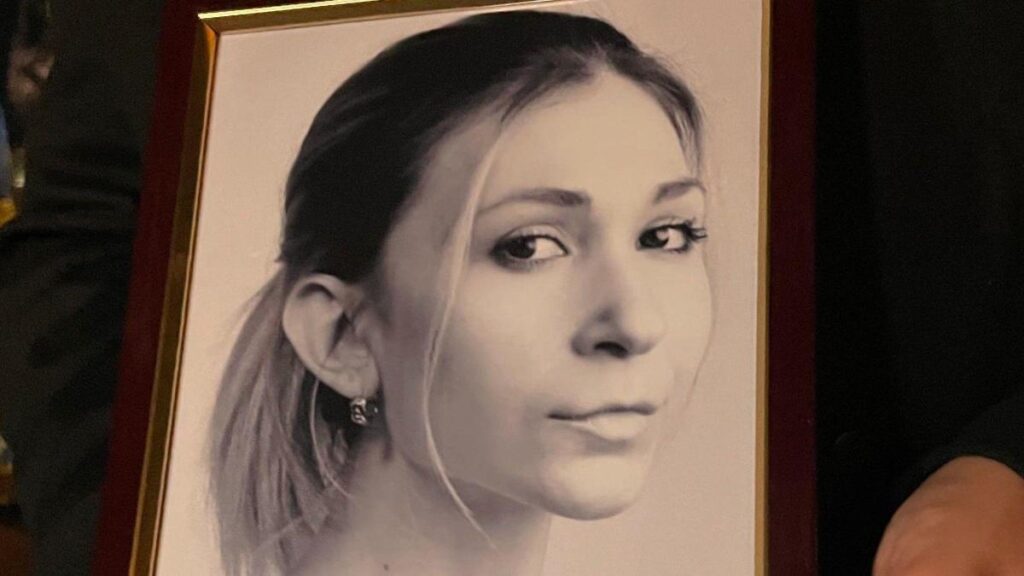Viktoriia Roshchyna, a Ukrainian journalist, disappeared in August 2023 in an area of Ukraine occupied by Russian forces. Russian authorities took nine months to confirm her detention, offering no explanation for her imprisonment. Recently, her father received a brief notification from the Russian Ministry of Defence stating that Viktoriia had died at the age of 27, with her body to be returned to Ukraine in a prisoner exchange. The letter listed her death date as September 19, but provided no details surrounding her passing. This stark communication has raised numerous questions about the circumstances of her detention and death.
In memory of Viktoriia, friends gathered in central Kyiv’s Maidan to honor her legacy. Attendees shared heartfelt tributes, expressing profound sorrow for the loss of an incredibly courageous individual. Reflecting on her life, many recounted her determination to report from dangerous, occupied territories, which her colleagues described as an essential facet of her character. Despite significant risks, including a prior detention for ten days at one point, Viktoriia remained committed to her mission. Her bravery and refusal to use a pseudonym while discussing sensitive topics showcased her dedication to revealing the truth about life under siege in occupied areas of Ukraine.
Viktoriia’s journey into occupied Ukraine began in July 2023, involving a challenging path through Poland and Russia. Reports indicate that she faced interrogation at the border, and by May, she was detained at “Detention Centre No. 2” in Taganrog, a facility notorious for its harsh conditions for Ukrainians. Eyewitnesses from the facility later confirmed her presence shortly before her death, which initially provided a glimmer of hope for her family and friends. They believed she would be released as part of a prisoner swap. However, she was moved to another facility, likely Lefortovo prison in Moscow, which is overseen by the FSB and notorious for holding civilians accused of serious crimes.
The ambiguity surrounding Viktoriia’s detention intensified as she was not charged with any crime while imprisoned in Russia. After her death was confirmed, Ukraine’s intelligence service shifted the categorization of her case from illegal detention to murder, highlighting the serious implications of her treatment as a civilian journalist. The absence of a criminal charge from Russia adds to the growing concerns over the treatment of civilian hostages and journalists under their custody. Ukrainian officials and her family have expressed outrage, condemning the act as a form of killing rather than an unfortunate event.
The plight of civilians like Viktoriia is not an isolated case; since the onset of Russia’s invasion, thousands have been taken from occupied territories, leaving their families in desperation. The Media Initiative for Human Rights reported nearly 1,900 cases of missing civilians, encompassing various demographics, including local officials and former soldiers. Due to lack of access for legal representation and humanitarian organizations, the process for families to recover their loved ones remains nearly impossible, as civilian swaps are exceedingly rare.
In the aftermath of Viktoriia’s death, her friends and colleagues have united in a commitment to discover the truth behind her story and ensure her memory endures. Sharing powerful reflections on her character, they emphasized her dedication to journalism, suggesting that she would want them to continue pursuing her work rather than solely mourning her loss. This sentiment underscores the importance of upholding her legacy, laying the groundwork for further investigation into her circumstances, and ensuring the stories of others like her are told and remembered. Viktoriia Roshchyna’s life and work symbolize the resilience of journalists in the face of overwhelming adversity and the critical need to address the human rights violations encountered by civilians in conflict zones.

